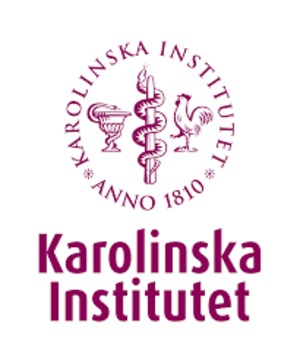This summer Karolinska Institute (Karolinska Institutet) will be offering an open online version of course, ‘An Introduction to Global Health'. This course is intended for everyone, including the general population and scholars, without prior knowledge.
The overall objective of this course is understanding challenges and solutions to global health issues from an inter-disciplinary perspective. The course starts on March 31, 2016.
Course At A Glance
Length: Not Known
Effort: 5-8 hours/week
Subject: Global Health
Institution: Karolinska Institute and edX
Languages: English
Price: Free
Certificate Available: Yes
Session: Starts on March 31, 2016
Providers Details
Karolinska Institute is offering the course via renowned online platform edX. Karolinska Institutet is one of the world´s leading medical universities. In 2013 Karolinska Institutet joined edX in order to offer MOOCs that represent a broad spectrum of our education. The MOOCs provide an excellent opportunity to share the knowledge generated at Karolinska Institutet with a broad and global audience.
This online platform edX provides online courses from the world's best universities. EdX courses are open to everyone. All you need is access to a computer with a current browser, an Internet connection, and, of course, a desire to learn.
About This Course
Global Health is a new field within public health sciences that integrates the knowledge from fields such as epidemiology, medicine, economy and the behavioral sciences. The main aim of the course, An Introduction to Global Health, is to describe and analyze variation in health between and within countries. This will provide an understanding of causes of the variation. The course will include measurements and determinants of health. Further, the course offers a public health perspective of the global burden of diseases. The course will specifically address: Maternal and Child Health; Sexual reproductive health and rights; Major infectious disease – malaria, TB, HIV, pneumonia; Non communicable disease; Mental health; Disasters; Injuries; Health systems and financing; and Health policy. Analysis will be done from a gender and equity perspective.
Why Take This Course?
This is a free online course. The course combines different teaching methods: lectures, self-study, and exercises using gapminder tools (Gapminder.org) to analyze indicators. An added value is that the course is open to participants from different parts of the world, which creates an intercultural learning and teaching environment. You will have developed an understanding of what kind of solutions exist today and hopefully you will be curious as to how to make positive difference in the world.
Learning Outcomes
By the end of this course applicants will learn:
- How the countries of the world changed from being developing or developed countries to now being a on a continuum of socio-economic level
- How falling child mortality and fertility will end the fast growth of the world population in this century
- How economic level, inequity and policy of nations determines the health of its citizens
- How the global burden of diseases change from mainly infections to now mainly non-communicable diseases
- How global policies such as UNs Development Goals, trade regulation, patents and human rights influence health
Instructors
-Anna Mia Ekström
MD, MPH, PhD, Clinical Professor
clinical professorship position
Karolinska Institute (KI) and the Karolinska University Hospital in Stockholm
-Asli Kulane
MD, MSc, PhD, Associate Professor in International Health at Global Health (IHCAR) Unit,
Department of Public Health Sciences
Karolinska Institute
-Helena Nordenstedt
Assistant Professor of Global Health
Karolinska Institute
-Hans Rosling
Professor of International Health at Karolinska Institute
Co-founder of the Gapminder Foundation
Course Format
-Week 1: Global health trends
Quiz: What do you know about the world?
Introduction
Money and health
Indicators
Determinants
-Week 2: Sex and Birth
Introduction
Population • Maternal Health
Newborn Health
Course assignment 1 (peer assessment)
-Week 3: Child Health
Introduction
Nutrition & Growth
3 Main Child Killers
Vaccination
-Week 4: Infections & Environment
Introduction
Water, Sanitation and Hygiene
HIV and TB
Antibiotic Use and Resistance
-Week 5: Non-Communicable Diseases and Injuries
Introduction
Cardiovascular disease, cancer, diabetes, lung disease
Mental health • Injuries and Disasters
Course assignment 2 (peer assessment)
Week 6: Cure, Prevent or Promote?
Introduction
Health Policy & Implementation
Health Services including Financing
Future Innovations
Exit quiz
How To Join This Course
1.Go to the course website link
2.Create an edX account to SignUp
3.Choose “Register Now” to get started.
4.EdX offers honor code certificates of achievement, verified certificates of achievement, and XSeries certificates of achievement. Currently, verified certificates are only available in some courses.
5.Once you sign up for a course and activate your account, click on the Log In button on the edx.org home page and type in your email address and edX password. This will take you to your dashboard, with access to each of your active courses. (Before a course begins, it will be listed on your dashboard but will not yet have a “view course” option.)
